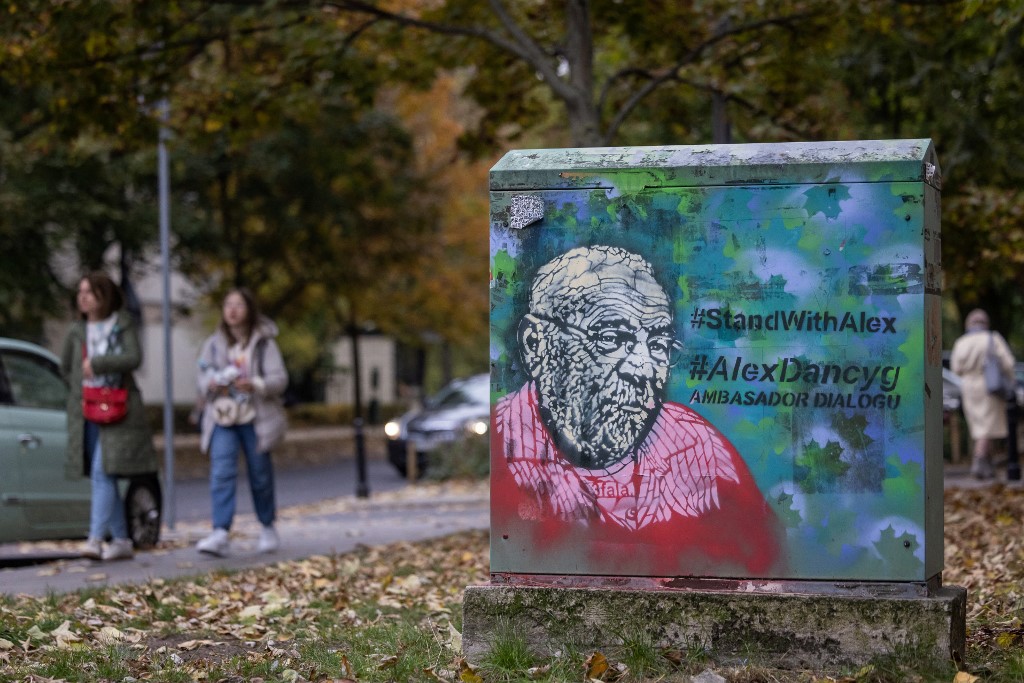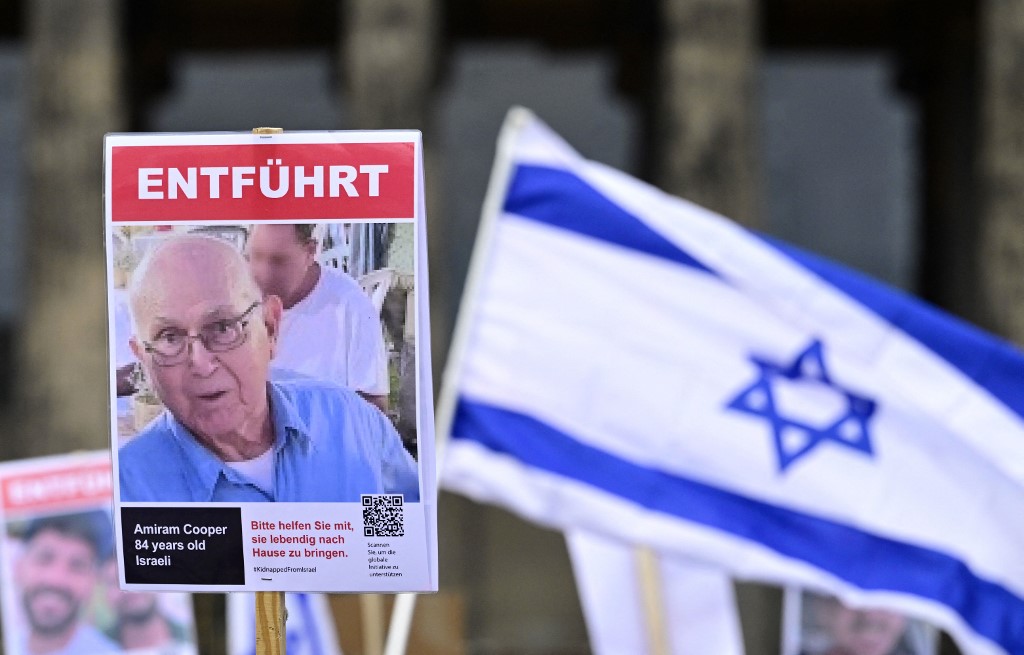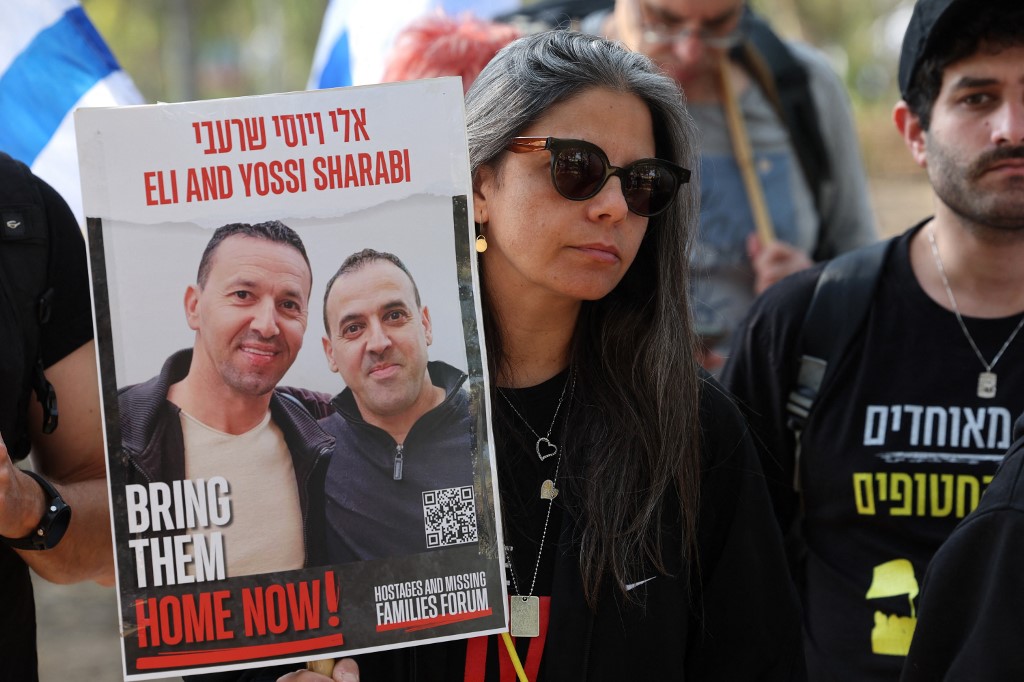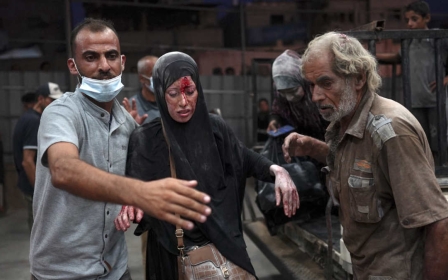War on Gaza: The captives that may have been killed by Israel's offensive
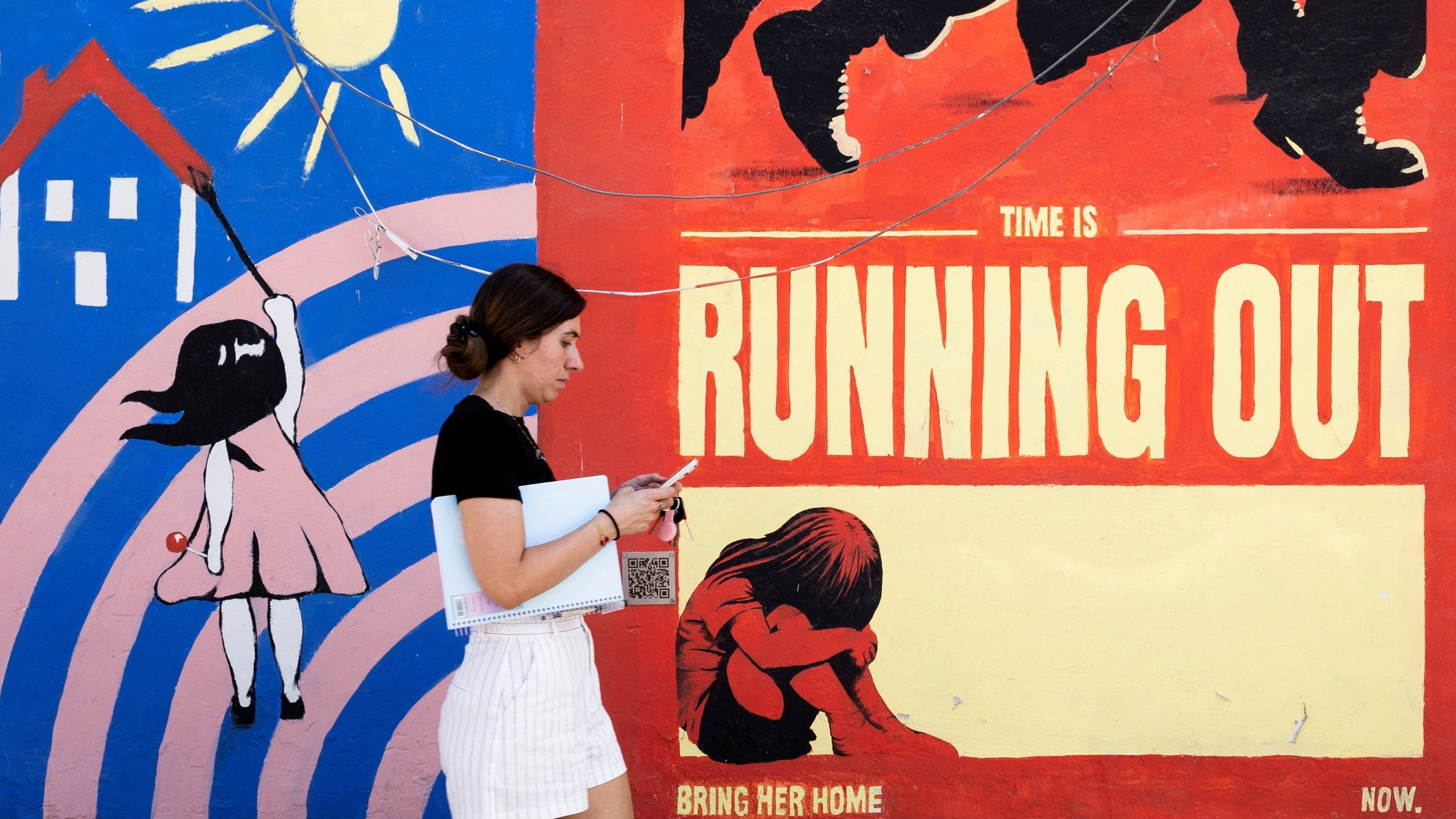
Since the 7 October Hamas-led attack, Israel's government and army have been adamant that the best method to free the Israelis taken captive by Palestinian fighters is intense military pressure.
Around 240 people were taken to Gaza during the raids on southern Israeli communities. An exchange deal with Hamas saw 100 of those freed in November.
But despite a number of high-profile Israeli raids to free the captives, many of them have died, with every confirmed death piling pressure from their relatives on Prime Minister Benjamin Netanyahu and ratcheting up calls for an immediate ceasefire deal.
About 50 captives have been confirmed dead in nine months of war. Israel has said the majority were killed by their captors, or in the case of five captives announced dead on Wednesday, slain in the fighting on 7 October.
Yet some appear to have been killed by Israel's relentless assault on Gaza, which has killed more than 39,000 Palestinians so far.
New MEE newsletter: Jerusalem Dispatch
Sign up to get the latest insights and analysis on Israel-Palestine, alongside Turkey Unpacked and other MEE newsletters
Below are some of the Israelis who may have been killed by the military supposedly fighting to free them:
Alex Dancyg and Yagev Buchshtav
On Monday, the Israeli army confirmed that Alex Dancyg, 75, and Yagev Buchshtav, 35, were both found dead in Gaza.
They did not confirm the cause of their deaths, saying there would be an investigation, but admitted it was "probably" the fault of the army. In March, Hamas said that Dancyg had been killed by Israeli army fire, and that Buchshtav lost his life due to lack of food and medicine caused by the ongoing blockade.
Dancyg, a Polish-Israeli dual citizen, was well-known as a Holocaust historian and promoter of Israel-Poland ties. Buchshtav was taken captive along with his wife, Rimon Kirsht Buchshtav, who was released in November as part of the swap between Israel and Hamas.
David Brinn, senior editor of the Jerusalem Post, wrote a song called Rimon’s Song about Rimon and the other captives in May.
Yotam Haim, Alon Shamriz and Samer El-Talalqa
The deaths of Yotam Haim, Alon Shamriz and Samer El-Talalqa made headlines after they were killed by the Israeli army in December despite the three of them waving white flags.
"During combat in [Gaza neighbourhood] Shejaiya, the IDF mistakenly identified three Israeli hostages as a threat. As a result, the troops fired toward them and they were killed," the army said in a statement at the time.
Israeli newspaper Haaretz reported that the hostages had been shot after managing to escape their captors, with military spokesperson Daniel Hagari branding it a "tragic error".
Shamriz's brother later said the army had "abandoned and murdered" him.
Arye Zalmanovich
Hamas released a video in November in which Arye Zalmanovic, 86, can be seen apparently receiving medical treatment before dying of a heart attack, which the group said was prompted by nearby Israeli shelling.
Zalmanovich, who grew up in Haifa, had in 1955 been one of the founders of Kibbutz Nir Oz, which was attacked by Hamas on 7 October, and is thought to have been the oldest of the captives taken to Gaza.
His family blamed Hamas for his death, claiming he had been physically and psychologically mistreated while in captivity.
Eliyahu Margalit, Mia Goren and Ronen Engel
The Israeli army confirmed the deaths of Eliyahu Margalit, Mia Goren and Ronen Engel, as well as Zalmanovich, in December, saying they died in Hamas captivity.
The circumstances of their deaths have been disputed. Hamas's armed wing, the Qassam Brigades, said in March that the three had died as a result of "savage Zionist airstrikes on the Gaza Strip".
The Israeli government's hostages directorate, however, said there was no evidence to support this and that Hamas was engaging in "psychological warfare".
A number of Israeli media outlets, including Ynet, said 76-year old Margalit - who ran the stables at Nir Oz - died on 7 October during the Hamas attack, citing comments from his family.
Other statements put out confirming the deaths of Goren and Engel have not given details on the time or cause of death, but have held Hamas responsible.
Haim Perry, Yoram Metzger, Amiram Cooper and Nadav Popplewell
In its March statement, the Qassam Brigades also said that Haim Perry, Yoram Metzger and Amiram Cooper had been killed in Israeli strikes.
Three months later, the Israeli army confirmed their deaths - along with Nadav Popplewell's - saying they had all died in Khan Younis during a period they were carrying out "operations" in the area.
The announcement of their deaths - which the Israeli army said raised "difficult questions" about the circumstances in which they died - provoked an angry response from the Hostages and Missing Persons Families Forum, who said the government needed to end the "cycle of sacrifice and neglect" and agree a deal to return the hostages, both living and "murdered", home to Israel.
Kfir, Ariel and Shiri Bibas
Ten-month-old Kfir Bibas was the youngest Israeli taken into Gaza, along with his four-year-old brother Ariel and mother Shira, 32.
In late November, Hamas said all three had been killed in an Israeli air strike.
However, Israel has not confirmed this and to this day the Israeli authorities and their family are treating them as alive and still in captivity.
Sahar Baruch
The Israeli army confirmed that 25-year-old student Sahar Baruch died during a failed rescue attempt in early December.
Two soldiers were wounded in the operation, and the army has refused to confirm whether Baruch was killed by Hamas or Israeli fire.
Itay Svirsky and Yossi Sharabi
Itay Svirsky and Yossi Sharabi were confirmed killed by the Israeli army in January.
Two days before their deaths were confirmed, they appeared in a video along with another captive, Noa Argamani - who was freed in an army operation last month - calling for the Israeli government to bring them home.
A day later, Hamas released another video showing Sharabi and Svirsky's dead bodies, with Argamani saying they were killed in an Israeli air strike.
The Israeli army said this was a "Hamas lie" while Svirsky's sister said in an interview with Army Radio that her brother was "shot by Hamas apparently out of their stress due to a nearby strike".
A later Israeli army investigation concluded that Sharabi, who it said was held in an apartment in the Nuseirat refugee camp, was killed after Israeli jets struck a nearby building.
Middle East Eye delivers independent and unrivalled coverage and analysis of the Middle East, North Africa and beyond. To learn more about republishing this content and the associated fees, please fill out this form. More about MEE can be found here.


